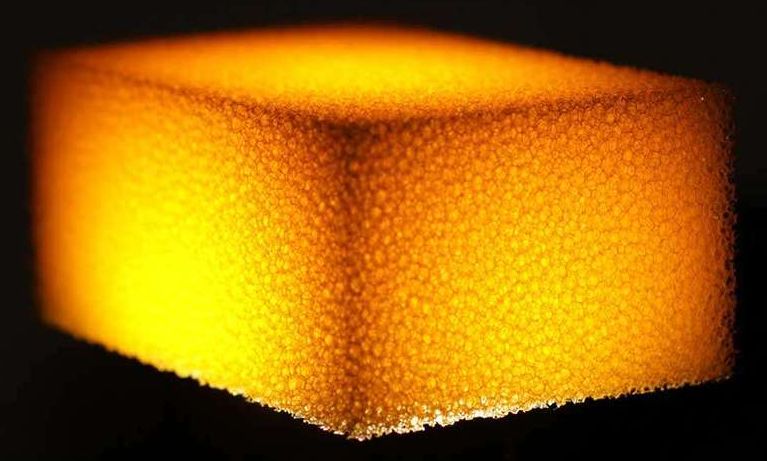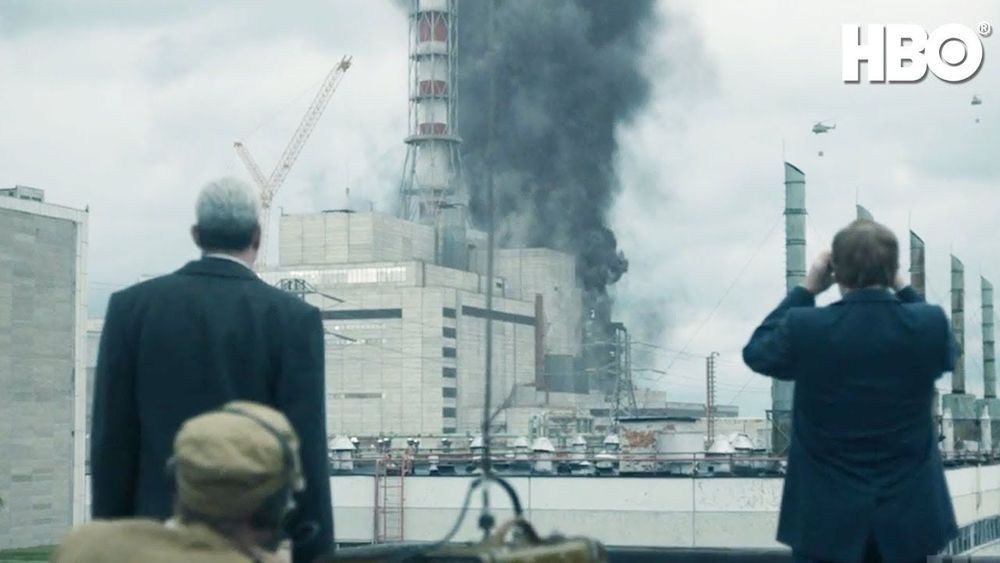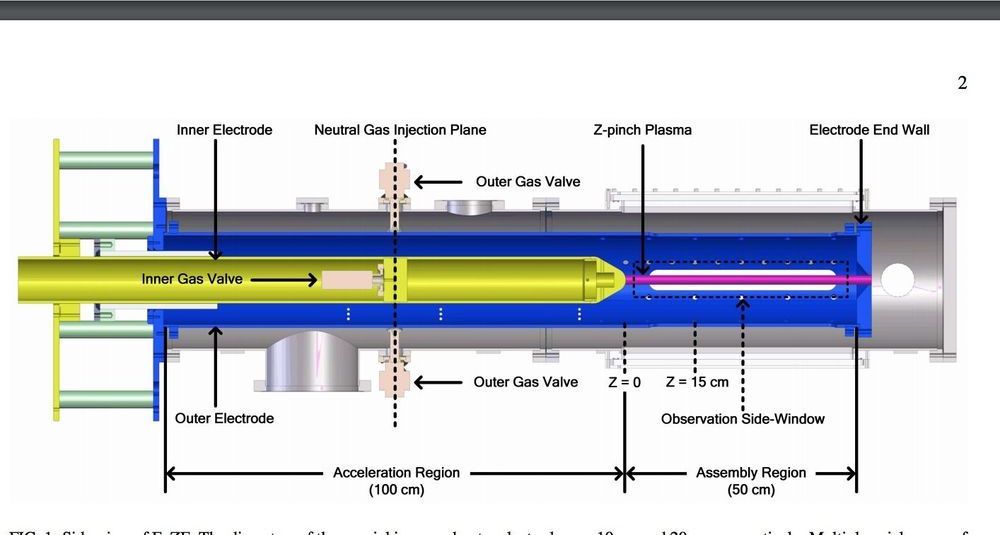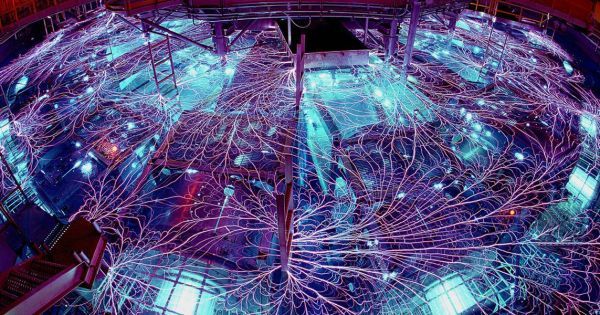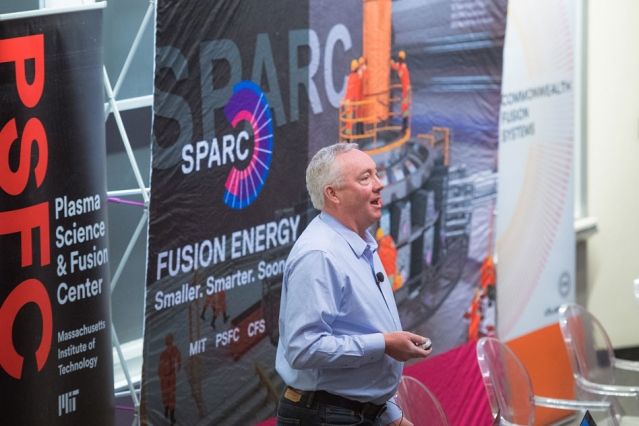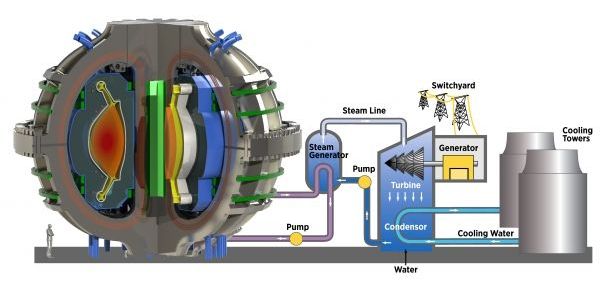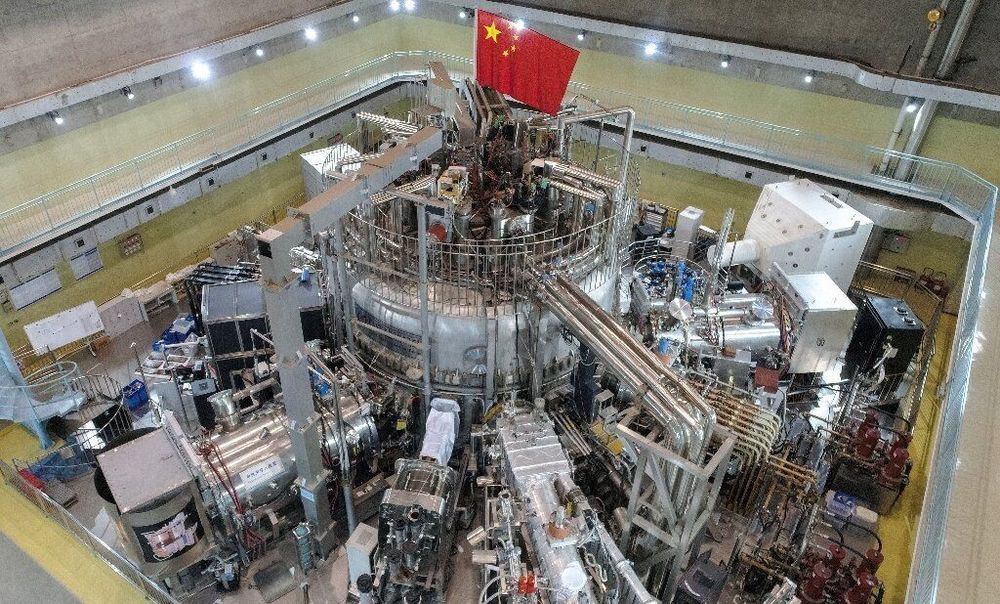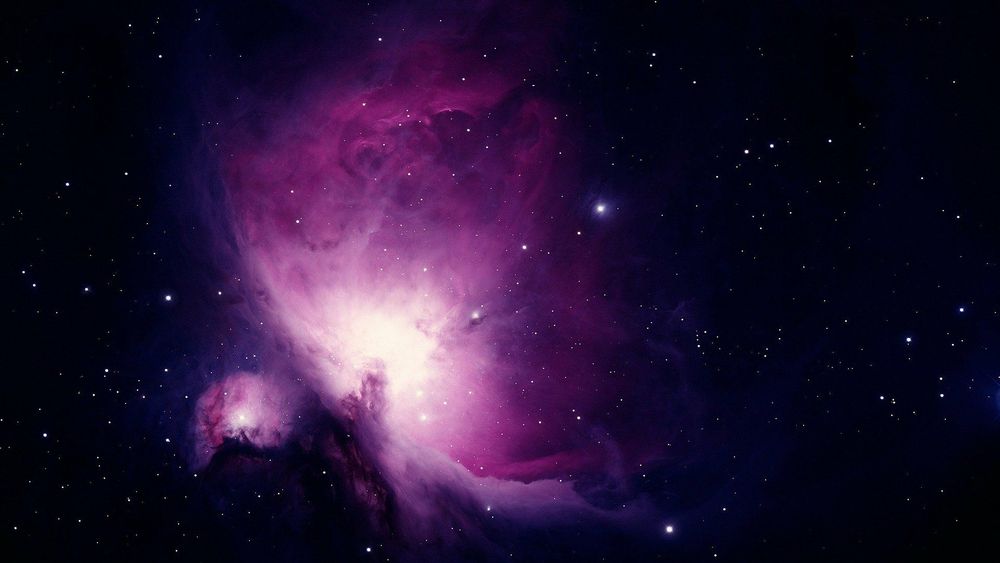Archive for the ‘nuclear energy’ category: Page 110
May 6, 2019
Is it time we gave nuclear power another chance?
Posted by Genevieve Klien in category: nuclear energy
May 1, 2019
Potentially Smallest Fusion Device Using Improved Z-Pinch Fusion
Posted by Quinn Sena in category: nuclear energy
ARPA-E-funded alternative z-pinch fusion which is being developed by Zap Energy.
Zap Energy is the most compact solution to Fusion Energy and does not use complex and costly magnetic coils. They surpassed ARPA-E Alpha Milestones in August 2018. Their reactor is consistently producing neutrons and they received $6.8 million ARPA-E OPEN funding.
The new Z-pinch has the simplest geometry of any magnetic confinement configuration. It is a cylindrical plasma column.
Continue reading “Potentially Smallest Fusion Device Using Improved Z-Pinch Fusion” »
Scientists discover source of clean, unlimited energy! In March 1989, the news rocked the world. Two respected chemists from the University of Utah: Martin Fleischmann and Stanley Pons, told a receptive media they had solved the biggest physics problem of the atomic age. Their compelling claims of room-temperature nuclear fusion in a jar were cast as the solution to the world’s colliding environmental and energy crises.
The meltdown hit just weeks later when the claim was nuked by mainstream scientists who couldn’t reproduce their results and were unsatisfied with the team’s explanations. The cold fusion field has been on ice ever since. Whether considered a scandal, a screw-up, or a scientific character assassination by hot fusion advocates, the cold fusion episode is a case study for those who caution against the “science of wishful thinking.”
On the 25th anniversary of the rise and fall of cold fusion, its close cousin, low-energy nuclear reaction (LENR) science, is still on the fringe but simmering anew. Here’s a look back and a look ahead at a field that always gets a reaction.
Apr 30, 2019
Is the Promise of Cold Fusion Still Worth Waiting For?
Posted by Quinn Sena in category: nuclear energy
Ever since the 1989 debacle, cold fusion has been a byword for “junk science”—and cold fusion research has been anathema, tantamount to scientific suicide. Still, some quiet pioneers have continued the research, albeit under a changed name: LENR, or “low-energy nuclear reactions.” The jury’s still out on whether their methods will prove successful, but the race for inexhaustible “cold” fusion is definitely heating up.
Apr 29, 2019
MIT continues progress toward practical fusion energy
Posted by Quinn Sena in categories: climatology, nuclear energy, sustainability
In series of talks, researchers describe major effort to address climate change through carbon-free power.
National Academies study recommends a pilot fusion energy program that aligns with MIT’s fusion approach and SPARC project.
Apr 28, 2019
China’s quest for clean, limitless energy heats up
Posted by Genevieve Klien in category: nuclear energy
A ground-breaking fusion reactor built by Chinese scientists is underscoring Beijing’s determination to be at the core of clean energy technology, as it eyes a fully-functioning plant by 2050.
Apr 25, 2019
Extracting something from nothing: A bright glow from empty space
Posted by Quinn Sena in categories: nuclear energy, particle physics, quantum physics
Particles travelling through empty space can emit bright flashes of gamma rays by interacting with the quantum vacuum, according to a new study by researchers at the University of Strathclyde.
It has long been known that charged particles, such as electrons and protons, produce the electromagnetic equivalent of a sonic boom when their speeds exceed that of photons in the surrounding medium. This effect, known as Cherenkov emission, is responsible for the characteristic blue glow from water in a nuclear reactor, and is used to detect particles at the CERN Large Hadron Collider.
According to Einstein, nothing can travel faster than light in vacuum. Because of this, it is usually assumed that the Cherenkov emission cannot occur in vacuum. But according to quantum theory, the vacuum itself is packed full of “virtual particles”, which move momentarily in and out of existence.
Continue reading “Extracting something from nothing: A bright glow from empty space” »
Apr 25, 2019
China’s ‘artificial sun’ project to harness nuclear fusion energy
Posted by Genevieve Klien in category: nuclear energy
China’s “artificial sun” will achieve nuclear fusion by the middle of this century, one of the project leaders said Wednesday.
HL-2M Tokamak, the modified Chinese-designed “artificial sun” and a device to harness energy from fusion, will be completed this year. It is expected to increase the electricity intensity from one mega amperes to three mega amperes, an important step to achieve nuclear fusion, a spokesperson surnamed Liu with the press office of the Southwestern Institute of Physics (SWIP), affiliated with China National Nuclear Corporation, told the Global Times. An ampere is a standard measurement of electric current.
For instance, the deuterium (also known as heavy hydrogen) extracted from one liter of seawater releases the energy equivalent of burning 300 liters of gasoline in a complete fusion reaction, Liu said.
Continue reading “China’s ‘artificial sun’ project to harness nuclear fusion energy” »
